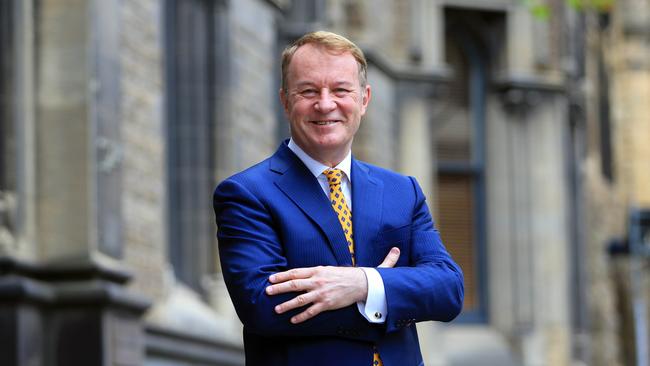Australia’s international education industry falls victim to politics

How could a Labor government that only months before had been talking up a Big Australia do this to its core constituency of public universities? How could any government, in the current global competition for skilled young talent, suddenly turn its back on the most significant pipeline for securing such talent?
But it did. The government’s blunt-instrument approach was possible only because Australia’s $48bn international education industry, for many reasons, has never been prepared to come together and educate the wider community about its importance.
It is only now discovering the consequences for choosing to stay under the radar for too long. And amid a post-pandemic cost-of-living and housing crisis, with a federal election looming, it finds itself the low-hanging fruit and an easy target for all sides of politics.
Our nation’s history is replete with examples of homegrown industries that, for one reason or another, lose favour with the wider community. Mining, live cattle exports and coal-fired electricity generation are just three examples. On occasion, when an industry decides to unite to fight against negative perceptions, it can succeed. Such was the case when the mining industry won its campaign against the Gillard government’s proposed new tax.
For our industry, the warning signs had been there for some time. The Covid pandemic highlighted some of the great, as well as some of the worst, attributes of what it is to be an Australian.
Many local communities rallied together, took care of the elderly and looked out for their neighbours. Unfortunately, such generosity of spirit did not necessarily apply to the thousands of young people from our neighbouring countries whom we had invited to study here.
Our prime minister at the time, Scott Morrison, thought he was on an electoral winner by telling them to “just go home”.
Unlike other study destination countries, such as Britain and New Zealand, those students who could not return home were denied any form of JobKeeper-style assistance. It was left largely to education providers and sympathetic local councils to provide access to food banks and other support. There were unfortunate examples of young Asians being subjected to racial abuse as well.
When our national borders finally reopened, without any consultation with international education stakeholders, the Morrison government announced unlimited work rights for overseas students who were supposed to be studying full time.
It soon became obvious that this new work rights policy had nothing to do with financially supporting young people to achieve their study goals. Instead, it was to meet the demands of the hospitality and tourism industry to fill its labour force needs.
Here was a case of one industry’s successful lobbying totally compromising the quality outputs and reputation of its international education industry counterparts.
Having noted with dismay the political community’s lack of support for our sector, the International Education Association of Australia decided something had to be done to educate the wider community on the benefits of providing world-class qualifications to young people from around the globe. Using IEAA reserve funds, a public relations campaign was developed.
The initial theme of Worth Our Welcome was tested on focus groups in outer-suburban and rural communities. The overwhelming response was negative due to the misplaced perception that international students were not worth welcoming because they were taking university places and jobs away from young Australians. A revised campaign theme, Helping Australia Thrive, met with a much better response.
However, the focus groups indicated a strong preference for overseas students to work in aged care and fruit picking, not those jobs sought by young Australians, such as cafe baristas.
Despite strong endorsement for the campaign from education providers, not one agreed to sign up to expand the campaign. As IEAA had sufficient funds only for a social media public relations campaign, we asked other stakeholders for co-investment to broaden the campaign into print and radio media outlets. Ironically, the overwhelming response was that there was no longer a need for any such public relations campaign now that international students were returning to Australia in almost record numbers.
Fast-forward two years and we see a significant industry and soft diplomacy enabler in disarray. Instead of combining forces to shout from the rooftops about our attributes, we have groups of providers actively lobbying for special deals, carve-outs and above-cap allocations. Others are simply hoping the whole new policy framework will not eventuate.
The fact that neither Labor nor the Coalition or the Greens seems willing to stand up and support our beleaguered sector is a stark reminder that a great deal of work is yet to be done to develop a deeper understanding of the immense value of our industry.
Phil Honeywood is chief executive of the International Education Association of Australia.



The sudden announcement in the Albanese government’s budget of caps on overseas student numbers came as a shock to our 39 public universities and the 1400 other education providers registered to enrol such students.